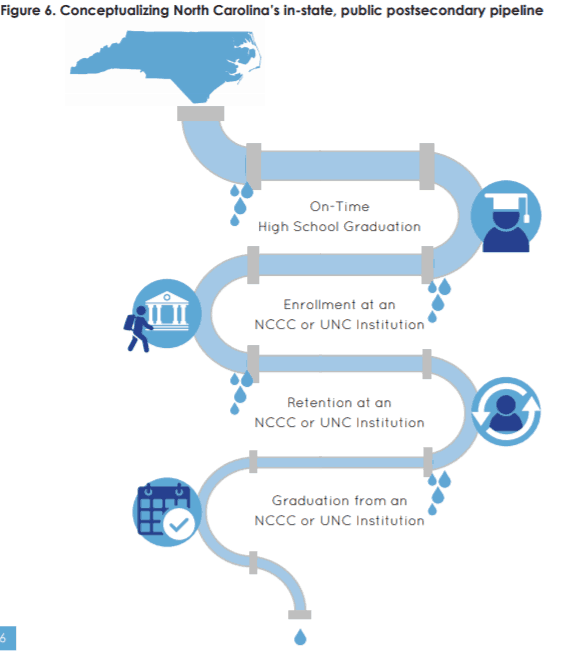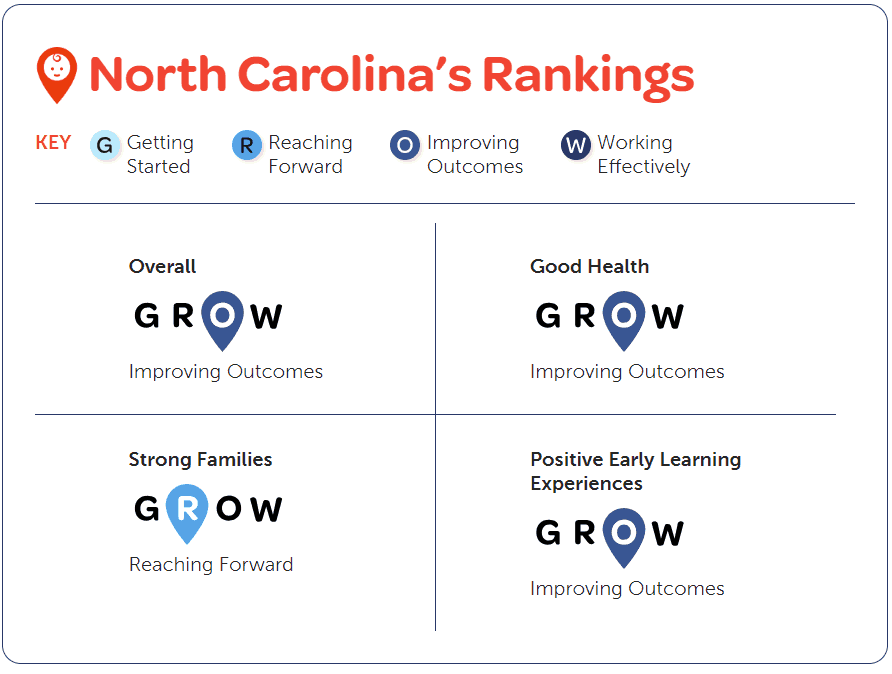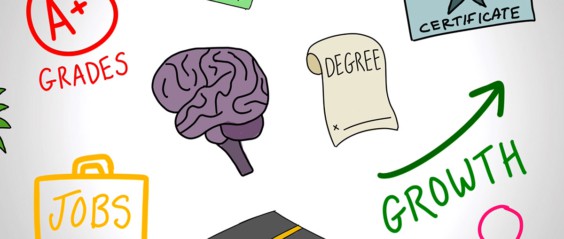The People’s Session
Do you think each school should have its own nurse? Do you think the corporate income tax should be increased to fund education? Share your opinions on these statements and more with the People’s Session. The People’s Sessions is an online project from EducationNC and Reach NC Voices that lets you weigh in on key education issues and even add your own statements to be considered. Check it out here.
Dropping Knowledge
Carolina Demography and the Belk Endowment released a new report yesterday about North Carolina’s leaky educational pipeline. The report follows cohorts of ninth-graders as they make their way through the educational pipeline (think graduate from high school, attend some form of postsecondary education, and get either a degree or high-quality credential), looking at the points where they drop out or stop out along the way. Only 16% of ninth graders in 2007-08 graduated high school, transitioned to a NC community college or UNC institution, and graduated on time. The graphic below illustrates the biggest loss points from the pipeline.

There is a lot to unpack from the report. Over the next month, EdNC is publishing a series of excerpts, explainer videos, and student profiles that illustrate some of the main points in the report. Watch our first explainer video below, and view all our content related to this report here.
The Next Evolution
Over the last decade, it’s become increasingly clear that how a child spends his first three years of life critically impacts the rest of his life, from education outcomes to health outcomes and more. ZERO TO THREE and Child Trends just released the State of Babies Yearbook 2019, a look at national and state-by-state data on infant and toddler wellbeing. The Yearbook opens with this line: “For the 12 million infants and toddlers in the United States, the state where they are born and live during their first three years makes a big difference in their chance for a strong start in life.”
So, how do babies born in North Carolina fare? The Yearbook ranks states’ progress in four areas: overall wellbeing, good health, strong families, and positive early learning experiences. States are ranked on a scale from “getting started” to “working effectively.” For the most part, North Carolina is ranked at “improving outcomes,” which is a step below “working effectively.”

To see a breakdown of each category and policy recommendations, visit the North Carolina snapshot here.
On a related note, DHHS released their Early Childhood Action Plan on Wednesday. Read more about the event Wednesday and the action plan goals here.
What we're reading
How educated is North Carolina?
What is postsecondary attainment, and why is it important? What is the current landscape of postsecondary attainment in NC? What is our state’s goal for postsecondary attainment? EdNC explains.... Read the rest-
Chart: How the definition of “journalist” is changing
-
Money-Savers Focus Attention -- and Eyes -- on the Prize
-
Workism Is Making Americans Miserable
-
The soaring cost of US child care, in 5 charts
-
Pollution is bad for your health and the environment. It’s also bad for schools, two recent studies show.
-
Special report: water


